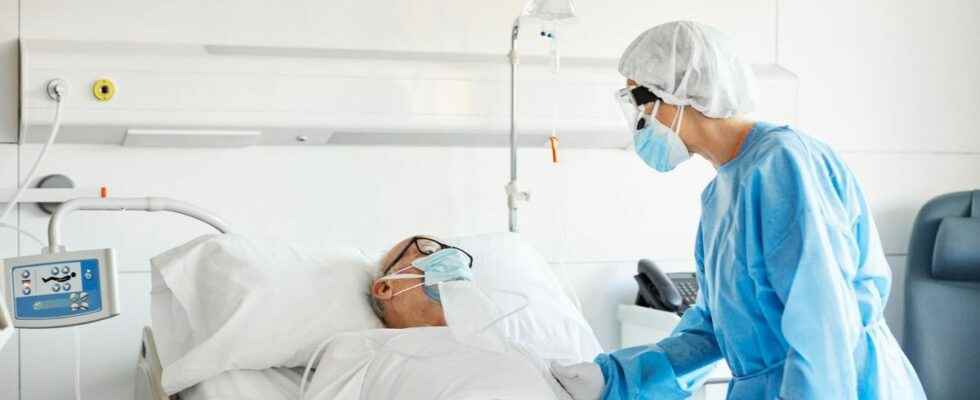Published ,
Reading 2 mins.
Why do vaccinated people develop serious forms after a Covid infection? French researchers have highlighted a particular immunological deficit in a quarter of these patients.
Despite a complete vaccination schedule, some patients will develop serious forms? Apart from vaccination failures, other factors may explain this phenomenon. Researchers from Inserm, AP-HP and teacher-researchers from Paris Cité University within the Imagine Institute have highlighted a particular immunological deficit in some of these patients. These results are published in the journal Science Immunology.
Why do some patients develop severe forms despite the vaccine?
The authors studied a cohort of 48 patients, aged 20 to 80, who had a severe or critical form following a Covid-19 infection, despite a complete vaccination schedule with an mRNA vaccine. The number of patients studied was then reduced to 42 in order to focus on causes that have not yet been elucidated.
“The idea was thus to rule out severe forms that may have developed following a failure of vaccination, in order to isolate and identify other factors. For various reasons (HIV infection, presence of lymphoma, taking immunosuppressive treatments, etc.), six patients had a defective vaccine response and were therefore excluded from the study. details the press release.
An immunological deficiency in a quarter of cases
In these 42 patients suffering from a severe form despite vaccination, 24% presented an immunological deficiency, that is to say a
Data analysis indicates that 24% of the 42 patients had antibodies that were able to neutralize type 1 interferons. Apart from this feature, these patients had no other immunological deficits and no history of severe viral infection.
Type 1 interferons (IFN 1) are a group of 17 proteins usually produced rapidly by the body’s cells in response to viral infection. It is, in a way, the first line of defense of the body, the purpose of which is to inhibit the replication of the virus in the infected cells. In these patients, “auto-antibodies directed against type 1 interferons were found” specify the authors. Neutralizing the action of IFN 1, these auto-antibodies thus prevent the body from defending itself well against the virus, leaving people at greater risk of serious forms.
Consult a GP online
Vaccination remains useful even in these patients
Fortunately, this dysfunction of the immune system remains rare. The authors would like to point out that the vaccination seems to have had an effect all the same: “Interestingly, although these patients developed a severe form of Covid-19, none resulted in death. However, in the unvaccinated population, 20% of people who die have type 1 anti-interferon autoantibodies. We can therefore assume that the vaccination had an effect even if it did not succeed in preventing the development of the disease. sickness“.
The researchers recommend testing the presence of anti-IFN-1 autoantibodies in vaccinated patients who would be hospitalized after infection with SARS-CoV-2. They are also continuing their work to better understand the origin of these anti-IFN-1 auto-antibodies in certain patients, focusing in particular on genetic factors.
